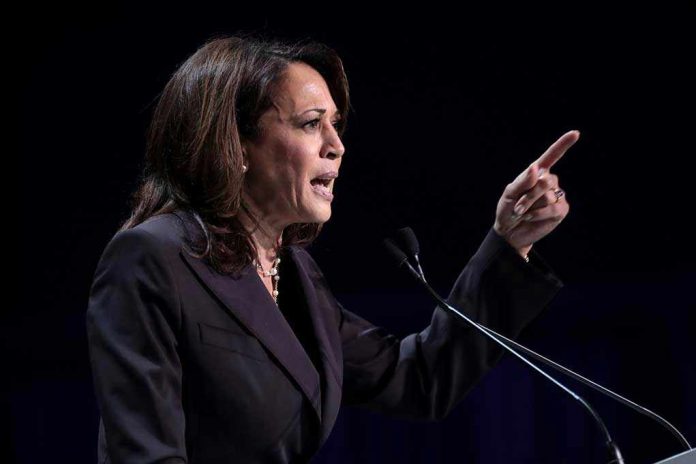
Kamala Harris’s revelations highlight the tensions within the Democratic Party, underscoring strategic missteps and identity politics that could shape its future.
Story Highlights
- Kamala Harris regrets not challenging Biden’s candidacy, citing risks.
- Harris reflects on the potential risks of choosing Buttigieg as VP.
- Democratic Party faces strategic uncertainty post-election.
- Harris’s public self-critique is rare among political leaders.
- Identity politics play a significant role in electoral dynamics.
Harris’s Reflections on the 2024 Election
Kamala Harris, in a candid interview, has expressed regret for not opposing Joe Biden’s decision to run for a second term in 2024. She cited widespread public doubts regarding Biden’s age and ability to campaign effectively. Harris’s concerns were rooted in the potential risk of Biden’s candidacy, which was ultimately realized when he dropped out, leading her to become the Democratic nominee. Her candid reflections come from her book “107 Days,” where she critiques her cautious approach.
The Role of Identity Politics
In her interview, Harris also discussed the challenges of selecting a vice-presidential running mate. The potential candidacy of Pete Buttigieg was seen as a “real risk” due to concerns about public acceptance of a ticket featuring both a Black woman and a gay man. Harris’s decision was influenced by the perceived electability of such a diverse ticket, highlighting the intricate role identity politics plays within the Democratic Party. This strategic choice underscores ongoing debates about representation and its impact on electoral success.
Implications for the Democratic Party
The Democratic Party now faces a leadership vacuum and strategic uncertainty following Harris’s loss to Donald Trump. The public self-critique by a high-level politician like Harris is unusual and reflects deeper divisions within the party. As the party reassesses its strategies, there is increased scrutiny on candidate selection processes, especially concerning factors like age and identity politics. These developments are expected to influence the party’s approach to future elections, as it seeks to address internal divisions and appeal to a broader electorate.
Harris has not announced any plans regarding a potential run in the 2028 election cycle. Her reflections and the Democratic Party’s current strategic reevaluation suggest that the lessons from 2024 will likely shape the party’s future direction. As the Trump administration progresses, the Democrats are tasked with rebuilding their leadership and refining their approach to issues of identity and electability that have dominated recent political discourse.
Sources:
Kamala Harris says she ‘had a certain responsibility’ to argue against Biden running again




